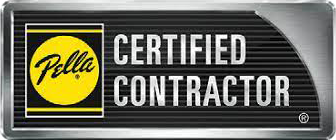Imagine standing in your warehouse after a brutal Nebraska storm, watching water drip from the ceiling into strategically placed buckets. Sound familiar?
If you’re a business owner in Omaha dealing with roof issues, you’re probably wondering what it takes to properly fix this mess.
Understanding commercial roofing basics
Before diving into solutions, let’s make sure we’re on the same page about what commercial roofing entails.
A commercial roof is quite different from the pitched shingles on your home. These roofs are typically flat or low-slope surfaces designed to cover warehouses, office buildings, retail stores, and industrial facilities. They’re built to handle heavy equipment, foot traffic, and Nebraska’s unpredictable weather patterns.
The most common commercial roofing systems in Omaha include:
- TPO (Thermoplastic Olefin): A single-ply membrane known for energy efficiency.
- EPDM (Ethylene Propylene Diene Monomer): A durable rubber membrane.
- Modified bitumen: An asphalt-based system reinforced with fabrics.
- Built-Up roofing (BUR): Multiple layers of asphalt and reinforcing materials.
- Metal roofing: Long-lasting standing seam or corrugated panels.
Each option has its own strengths and is suited to different needs. The right choice depends on your building’s requirements, long-term goals, and budget considerations.
What influences the cost of a commercial roof?
While it’s tempting to focus solely on price, it’s important to understand the factors that influence the overall cost of a commercial roofing project.
Here are some key considerations:
- Material selection: Different roofing systems come with varying levels of durability, energy efficiency, and maintenance needs. Choosing the right material for your building is a balance between upfront investment and long-term value.
- Building size and complexity: Larger, simpler roofs are often more cost-effective per square foot than smaller, intricate ones with multiple levels, skylights, or HVAC equipment.
- Roof access and height: Easy access can streamline installation, while challenging locations may require additional equipment and time.
- Existing roof condition: If your current roof is in poor shape, additional work like tear-off, disposal, or structural repairs may be necessary.
- Seasonal timing: Roofing demand peaks in spring and summer, which can affect availability and pricing. Fall installations may offer more flexibility, but weather windows are tighter.
Maximizing the value of your investment
A new commercial roof is a significant investment, but there are ways to ensure you get the most out of it:
- Choose quality over price: The lowest bid isn’t always the best value. A quality installation with durable materials can save you thousands in repairs and energy costs over the roof’s lifespan.
- Focus on energy efficiency: Nebraska’s temperature swings make energy-efficient roofing systems a smart choice. While they may require a slightly higher upfront investment, the long-term savings on heating and cooling can be substantial.
- Plan for maintenance: Regular maintenance is key to extending the life of your roof. Budgeting for annual inspections and minor repairs can prevent costly issues down the road.
- Document everything: Keep detailed records of your roof installation, warranties, and maintenance. This will help with insurance claims, property valuations, and future roofing decisions.
Finding a roofing expert
When it comes to hiring a commercial roofing company, the focus shouldn’t be on finding the cheapest bid — it should be on finding the right experts for the job. A roof is a critical investment in your business, and cutting corners to save a few dollars upfront can lead to costly repairs or replacements down the road.
Here’s what to prioritize when selecting a roofing contractor:
- Expertise and experience: Look for a company with a proven track record in commercial roofing. Experienced contractors understand the unique challenges of different roofing systems and can recommend the best solution for your building.
- Licensing and insurance: Ensure the contractor is licensed to operate in Nebraska and carries adequate liability and workers’ compensation insurance. This protects you from potential legal and financial risks.
- References and reputation: A reputable contractor should have a portfolio of successful projects and be willing to provide references. Take the time to check reviews, ask for testimonials, and, if possible, visit some of their completed projects.
- Warranty coverage: Understand the warranties offered for both materials and labor. A strong warranty reflects the contractor’s confidence in their work and provides peace of mind for years to come.
- Clear communication: Choose a contractor who takes the time to explain the process, answer your questions, and provide a detailed scope of work. Transparency and professionalism are key indicators of a trustworthy partner.
Why choose Millard Roofing for you commercial roof needs?
When your commercial building needs a new roof, you’re not just investing in materials and labor — you’re investing in peace of mind. At Millard Roofing, we’ve been installing commercial roofs across Omaha for over 25 years, and we understand that every building has unique challenges.
Whether it’s Nebraska’s brutal hailstorms or those sneaky ice dams that form during our unpredictable winters, we’ve seen it all!
Our team takes the time to understand your building’s specific needs, budget, and timeline. We don’t believe in cookie-cutter solutions — we believe in doing the job right and backing our work.
Ready to protect your business with a reliable, long-lasting roof? Contact us today to learn more about our commercial roofing services in Omaha and eastern Nebraska.





